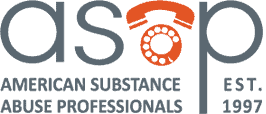By: ASAP
According to the regulations of the U.S. Department of Transportation (DOT), employees who test positive for controlled substances or alcohol, and thereby violate the DOT drug and alcohol regulations, are required to complete the Return-to-Duty (RTD) process successfully before they can resume safety-sensitive duties. The Return-to-Duty process is part of the overall Substance Abuse Professional (SAP) process.
Here is a general overview of the DOT Return-to-Duty process:
- Referral to a DOT qualified Substance Abuse Professional (SAP):
- After a positive drug or alcohol test or violation, the employee must be evaluated by a qualified Substance Abuse Professional (SAP). The SAP assesses the employee and develops a course of recommendations, which could include a treatment plan and/or education. The SAP based on the employee’s successful completion of their program is then deemed eligible to return back to work upon a negative RTD test(s).
- Completion of Treatment Plan:
- If the SAP recommends a treatment plan, the employee must successfully complete it. The treatment plan may involve education, counseling, or rehabilitation, depending on the SAP’s clinical evaluation and assessment.
- Release to Return to Duty:
- If the SAP determines that the employee has successfully completed the required steps, the SAP will provide a written release to return to safety-sensitive duties. This allows the employer or future employer to conduct a RTD drug and/or alcohol test.
- Return-to-Duty Test:
- Prior to returning to safety-sensitive duties, the employee must undergo a return-to-duty drug and/or alcohol test. This test must come back negative for the prohibited substances. The RTD test supersedes a pre-employment test because it is observed.
- Follow-Up Testing:
- The employee is subject to follow-up testing as specified by the SAP directly to the employer. This testing ensures ongoing compliance with drug and alcohol DOT regulations.
- Follow-Up Testing Period:
- The DOT safety-sensitive employee will be subject to unannounced observed follow-up testing for a specified period after returning to duty, as determined by the SAP. Minimum testing requirements from the SAP are 6 times in one year. Based on what is clinically appropriate for a particular case a SAP can require follow-up testing for up to 5 years.
- Follow SAP’s Recommendations:
- The employee must follow all recommendations made by the SAP, including any ongoing treatment, counseling, self-help meeting requirements.
It’s important for employers to follow the DOT regulations carefully in these situations to ensure compliance and to prioritize the safety of the employee and others. Additionally, the specific procedures and requirements may vary depending on the mode of transportation (e.g., Federal Motor Carrier Safety Administration for trucking, Federal Aviation Administration for aviation, etc.).





